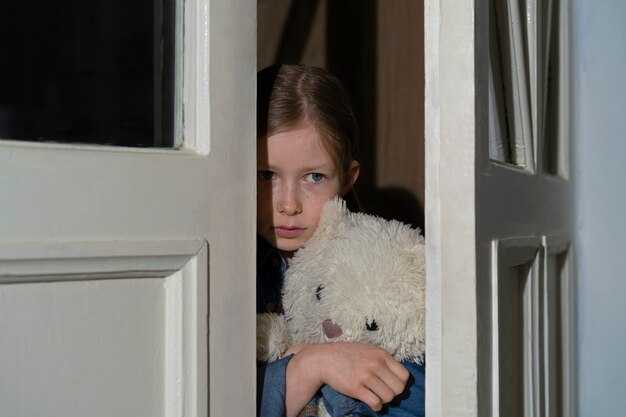The saddest part about childhood trauma, to me, is seeing so many people move through life with a battered spirit — their self-assurance, hope, and inner drive stripped away so that mere survival becomes their default. They lose touch with who they are: their strength, their potential, even the ability to tell kindness from cruelty in others. When a spirit has been wounded, people often withdraw, saying things like “I just want to avoid others” or insisting “people are just cruel,” or even adopting a fatalistic view — “it doesn’t matter what you do, it’s already ruined.” Some remain tied to people who mistreat them because they’ve lost the capacity to recognise a path out. When your spirit is whole, you won’t tolerate mistreatment and you don’t give up on life, because you hold a clear image of what you want, even if you haven’t reached it yet. Others can feel that inner strength — have you noticed how, when you begin making positive changes, people stop picking on you? They stop mocking you or brushing past you as if a protective field appears around you. I believe that’s real: a sort of boundary forms as your spirit fortifies. Without it, people encroach on your limits, write you off, and trouble finds its way in. Ask yourself: what happened to your spirit?
When life has beaten you down, it’s not only a loss of self-worth in relation to having loving people around — a crushed spirit makes even decent relationships hard to form. The lingering pain alters your expression, your tone, and how others read you; they can sense it, and you can feel it. You might keep people at arm’s length, or when you meet someone new you can’t tell who will harm you and who might actually be kind and trustworthy. Even when good people are present, anxiety and jumpiness about being yourself can prevent friendships from developing — casual plans never become real connections. Maybe isolation felt like protection at one time, but it is too steep a price now.
I want to be clear: the spirit is not annihilated. It can be crushed, dented, hidden away, but not destroyed — which means it can heal. Like a plant trodden underfoot, given rest, a little water, and care, it can spring back to life. You can mend a wounded spirit; many of you have done it already. This recovery restores your instinct for self-preservation so you can care for yourself. It revives your desire to contribute, the deep pleasure that comes from making some positive difference in the world. Healing rebuilds the inner power you need to be your true self, to feel joy, and to connect with others in ways that help them be themselves too. As the spirit recovers, your emotional radar sharpens. A sense of purpose begins to emerge, and your life gains shape and direction — you’ll move step by step toward a place where people love and value you, a place where you belong.
A lot of people are feeling disconnected from the world and from others, and I’ve watched enough to know something has shifted; those who were struggling before seem to be struggling more now. Not everyone, but many. Perhaps those of us who are relatively stable ought to reach out to those whose spirits are hurting — though that is easier said than done. Some will argue that you can’t address symptoms without addressing causes: politics, economics, power structures, men, women, the modern workplace. Those critiques are valid, but if you’re venting online, attacking people in comment threads, or slandering others, notice how that harms spirits all around: it injures those on the receiving end, intimidates bystanders into silence, and corrodes whoever hurls the abuse. Yes, it’s right to call out injustice, but it’s often hard to tell when you’re standing for truth or merely venting. If your spirit is already fragile, you may not be able to tell the difference — and public shouting rarely heals anyone. Arguments in comment sections are the illusion that getting the last word will make you feel victorious; instead, hearts close, wounds deepen, and nothing is resolved. Witnessing that kind of vitriol chips away at spirits across the board.
Becoming what you despise won’t heal you. Many insist the world must change and then list everyone who needs to change, but on a practical level the only person you can reliably change is yourself. The most constructive people aren’t those who win arguments by ranting; they are the ones who embody clarity, truth, and goodness. For a long time my own spirit was badly hurt, and trying to get others to own what they did only drained me further. Pouring energy into blame keeps you stuck. To rise, to become a light or a teacher by example, you must decide who you want to be and separate yourself from whatever dissociates you.
By dissociation I mean the split from yourself and from the present reality — being there physically but not fully present, your perception dulled. Dissociation is common today: you can listen to others yet struggle to judge truth from falsehood, feel that something is off but doubt your senses. With a damaged spirit, that internal warning is weaker, and you might justify actions that later leave you with shame or low self-regard. That pang of discomfort is often your intact spirit trying to get your attention, giving you a visceral signal that something’s wrong. When the spirit is compromised, that automatic check can fail; you lose the compass that keeps you from making choices that open fissures in your life. Small compromises breed bigger problems — a weakened spirit invites trouble, and I’ve watched this play out in countless ways.
Dissociated people are much easier to manipulate. Keep that in mind: when you’re cut off from your inner voice, you become vulnerable to being directed by others — even to the point of brainwashing. That’s evident in cult dynamics: members are told their perceptions are wrong and that only the group has the correct way to live; conformity is rewarded with belonging, and dissent is punished with shame or expulsion. For someone already lonely and wounded, the promise of acceptance can be intoxicating. People whose spirits are intact resist that kind of takeover more readily. A telltale sign of a cult is that when someone begins to regain confidence and speak up, they’re singled out or discarded. For a person with a fragile spirit, losing the group can feel unbearable, so they stay, dissociating to accept things they know are false or harmful. This is how grooming works: getting someone to accept small untruths until they can accept larger ones. Once that inner filter is shut down, it becomes possible to convince a person of almost anything.
Not every form of dissociation is cult-related, but thinking in those terms helps us understand how the spirit erodes. People who weren’t loved or supported as children, or who lack support now, will often go along with things they intuitively know are wrong just to belong. Cult-like dynamics satisfy the hunger for connection, even when joining them requires silencing the inner sense of truth and morality. That tendency is also what fuels cynicism toward strangers and contempt for humanity at large; it’s what leads people to override the small inner warning that something is a bad idea. Lying, stealing, and hookup culture can be symptoms of that shut-down moral compass. Casual sex isn’t inherently bad, but for trauma survivors there’s often a drive to hide their true longings and do whatever they think will gain acceptance. That pattern usually ends in dissociation: people pretend to be what they think others want. This rarely leads to genuine recognition of one’s worth. Casual encounters won’t suddenly reveal to someone that you are extraordinary and deserving of love; often they deepen the rift.
I discuss the trauma symptom of being unable to state what you really want in relationships — or even to allow yourself to hope privately. Many people get cut off from that inner yearning and end up settling for arrangements they don’t truly want. If someone is willing to accept a relationship that is merely physical when you want emotional reciprocity, that is self-betrayal. Betraying your core needs damages your spirit and trains you to silence yourself: you learn to smile through things that make you cringe. Sometimes, though, when enough pressure builds, that repressed desire erupts as anger or sorrow. That outburst may be embarrassing, but it also can jolt your spirit awake. It’s a sign your inner life is fighting back.
There’s a quote attributed to Bob Marley that resonates here: “It’s a coward who awakens a woman’s love only to refuse to love her.” There’s deep cruelty in taking another person’s affection while denying any intention to truly love them. That behavior shames and damages the lover’s spirit. I call that kind of exploitation “romantic shoplifting” or being a “romantic vampire” — feeding off someone who is emotionally dissociated and therefore can’t resist giving away their love. When someone secretly hopes for love no matter what you tell them, taking advantage of that hope is deeply harmful. That can happen to anyone, and it’s not acceptable. If you know a person loves you and you take advantage of them while pretending not to want a relationship, you are taking something essential from them — like taking food from a starving person. Don’t be that person.
To rebuild your spirit, watch for things that encourage dissociation: joining groups that are self-destructive, staying in degrading relationships, working in jobs that conflict with your ethics, lying or manipulating. If a job requires you to turn off your conscience, it’s not a good fit. Similarly, if porn dominates your life and you feel your spirit shrinking, stepping away from it can be a first step toward healing. Also consider stepping back from shaming others online — gossip and vicious comment threads might deliver a petty high, but they numb your heart. People who revel in that are often the most dissociated, becoming like zombies in a world of living spirits trying to bite anyone who’s awake.
Drugs — recreational or prescribed, when used to the point of numbing your conscience — also create dissociation. If stopping is hard, that’s a signal to seek help; other supports can replace the false comfort drugs provide. Psychological language, too, can be weaponised to deny reality. Concepts turned into jargon can be used to gloss over harm; “psychobabble” sometimes enables people to manipulate the vulnerable. You may recall a recent example I highlighted where someone repeated “hold space” over and over as a way to tolerate hurtful behaviour from a partner. Saying “I’m holding space” became a cover for accepting dismissiveness and cruelty. If you have to shut yourself down to keep a relationship functioning, it isn’t working — you’re tolerating damage that erodes your heart. Facing that truth can be terrifying, especially for those with attachment wounds, because it can feel existential. Yet reconnecting with your heart and becoming willing to walk away from painful bargains — “I’ll ignore my needs if you’ll just stay” — is essential. When you clarify what you truly want, you gain the power to step away, even if it means being alone for a while. Returning to the honest, painful reality is the only place where genuine healing can begin.
Be encouraged about the possibility of recovery. Picture how your life could look if trauma-driven patterns were healed. To help with that, I’ve put together a list of signs of healing that I cherish; you may already be partway there. Many of these signs are probably appearing in your life right now. You can read the list to gauge how far you’ve come, and you can download it for free here. See you very soon [Music]


 Childhood Trauma Breaks You Down. Here’s How to Heal Your Spirit">
Childhood Trauma Breaks You Down. Here’s How to Heal Your Spirit">

 Limerence Is Toxic Fix for Lonely, Joyless Life (4-Video Compilation)">
Limerence Is Toxic Fix for Lonely, Joyless Life (4-Video Compilation)">
 FWB & Attachment Styles: The Unexpected Connection">
FWB & Attachment Styles: The Unexpected Connection">
 Recognizing and Escaping Toxic Friendships (4-Video Compilation)">
Recognizing and Escaping Toxic Friendships (4-Video Compilation)">
 You’re NOT Overreacting — This Is Exactly How They Silence You">
You’re NOT Overreacting — This Is Exactly How They Silence You">
 ">
">
 10 Strategii Regulacji Emocji na Codzien.">
10 Strategii Regulacji Emocji na Codzien.">
 Czy Twoja Żona Uzależniona jest od Roślin?">
Czy Twoja Żona Uzależniona jest od Roślin?">
 Tylko domyślny rodzic to zrozumie.">
Tylko domyślny rodzic to zrozumie.">
 7 nawyków, które z łatwością rozpaliły jej podniecenie">
7 nawyków, które z łatwością rozpaliły jej podniecenie">
 Czy powinnam z nim zerwać?">
Czy powinnam z nim zerwać?">